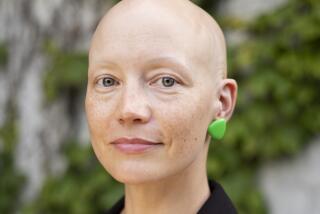Rebecca Gayle Howellâs apocalyptic poetry collection, âRenderâ
On the back cover of Rebecca Gayle Howellâs debut book of poetry âRender: An Apocalypseâ (Cleveland State University Poetry Center: unpaged, $15.95 paper), thereâs a definition Iâve never seen. In it, we learn that âapocalypseâ can mean âa literary genre informed by hallucination, grief, and a long view of history (primary concerns: the past, the present, and consequence).â
Is this for real? A quick look at Websterâs leaves me with my doubts. And yet, either way, it manages to encapsulate all thatâs vivid and moving about Howellâs remarkable collection, winner of the 2012 Cleveland State University Poetry Center First Book Prize, which uses the filaments of farm life (growing, tending, slaughtering) as a lens, a metaphor for ⌠well, everything.
âDrop memory / like glass // down into the bath / Bring up the heat // slow so none notice / nothing shatters,â Howell writes in âHow to Preserve,â one of the 23 numbered poems that make up the book. Here, we see her method: to illuminate through the most mundane activities of daily existence, something of the struggle and nobility of living.
Howell makes such a point explicit in the paired poems âA Catalog of What You Haveâ and âA Catalog of What You Do Not Haveâ the first of which offers a litany of residue (âthe offal // the slop, swill â pitiless / river â the beak the boneâ), while the second reads, in its entirety: âEnough.â
What makes this work so powerful is its precision. It may seem a gimmick to write a one-word poem, but, following on the heels of âA Catalog of What You Have,â it provides a perfect punctuation point.
So, too, the sequence of poems in the second half of the book in which Howell likens slaughtering a pig to a kind of lovemaking; âDonât miss / shoot her square,â she writes in âHow to Be a Man,â before concluding, âThe black-dawn air / cold and mean // The wet fog your breath / Or is it hers.â
Thereâs an unexpected intimacy to such an image, a sense of the physicality of life, of death and of endurance, which in the end is all we have. Howell gets at all of this with precision, pitiless but not unfeeling, knee-deep, waist-deep in the world.
In his foreword, Nick Flynn â who selected Howellâs manuscript for the First Book Prize â puts it this way: âTo enter into these poems one must be fully committed, as the poet is, to seeing this world as it is, to staying with it, moment by moment, day by day. Yet these poems hold a dark promise: this is how you can do it, but you must be fully engaged, which means you must be fully awake.â
âDo you remember how close / you were to her,â Howell writes in âHow to Kill a Hog,â tracing the complex lines that connect us, human and livestock, the interplay of love and sacrifice, âwhen she was farrowing / and she needed you // her bawling drawing / you out of bed.â The poem then goes on to describe the birthing of piglets before returning to the slaughter of their mother, which is (has always been?) the matter at hand.
Here we see the signal tension that embodies âRender,â between soul and body, between our desire and our need. â[C]lose your eyes just once,â Howell admonishes, âjust once // do not turn away.â
ALSO:
Amy Gerstler and Alexis Smith discuss the art of collaboration ...
Michael Demsonâs graphic novel of Shelleyâs radical âMask of Anarchyâ
More to Read
Sign up for our Book Club newsletter
Get the latest news, events and more from the Los Angeles Times Book Club, and help us get L.A. reading and talking.
You may occasionally receive promotional content from the Los Angeles Times.









